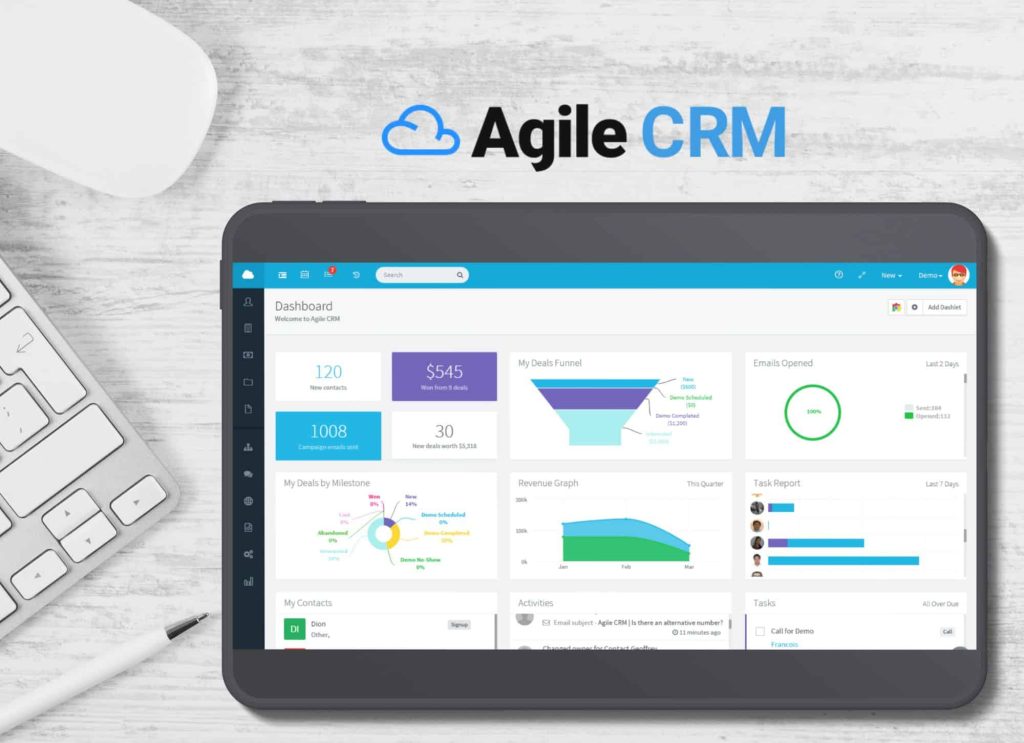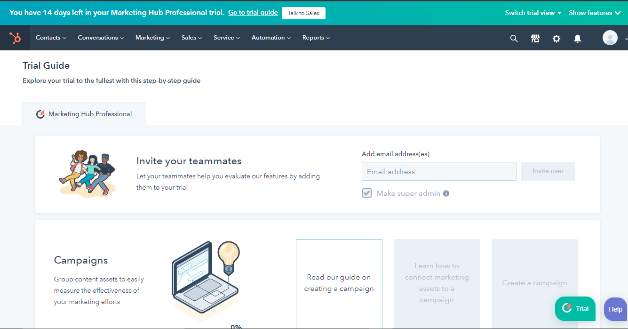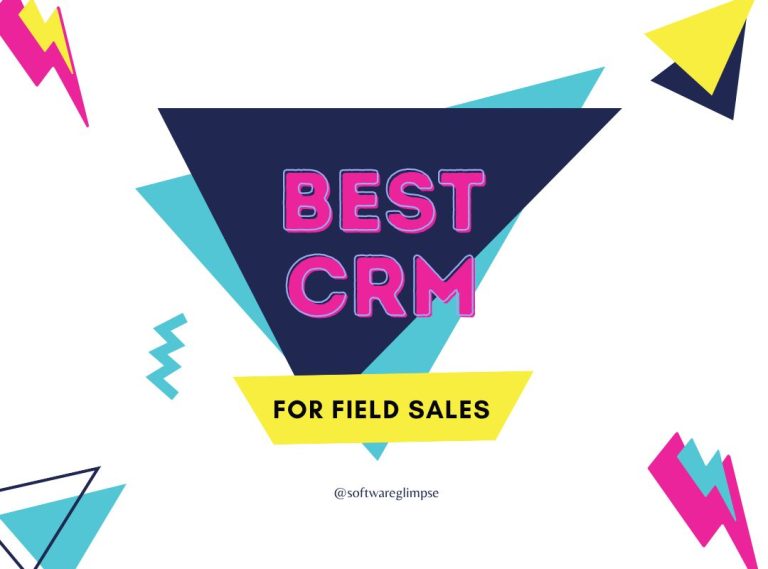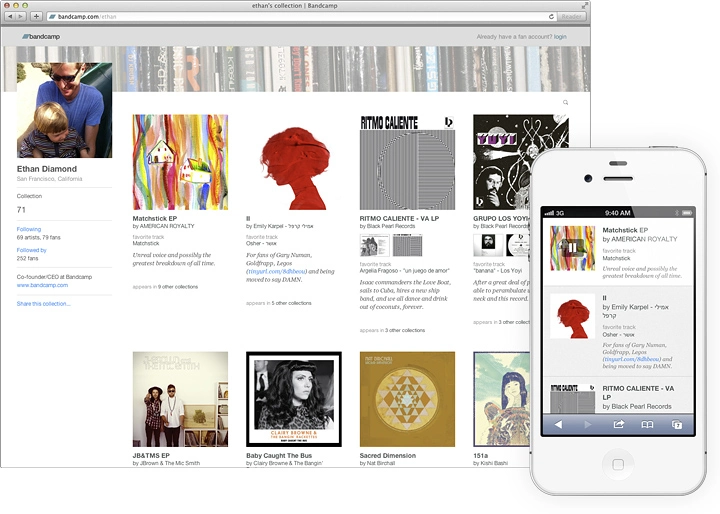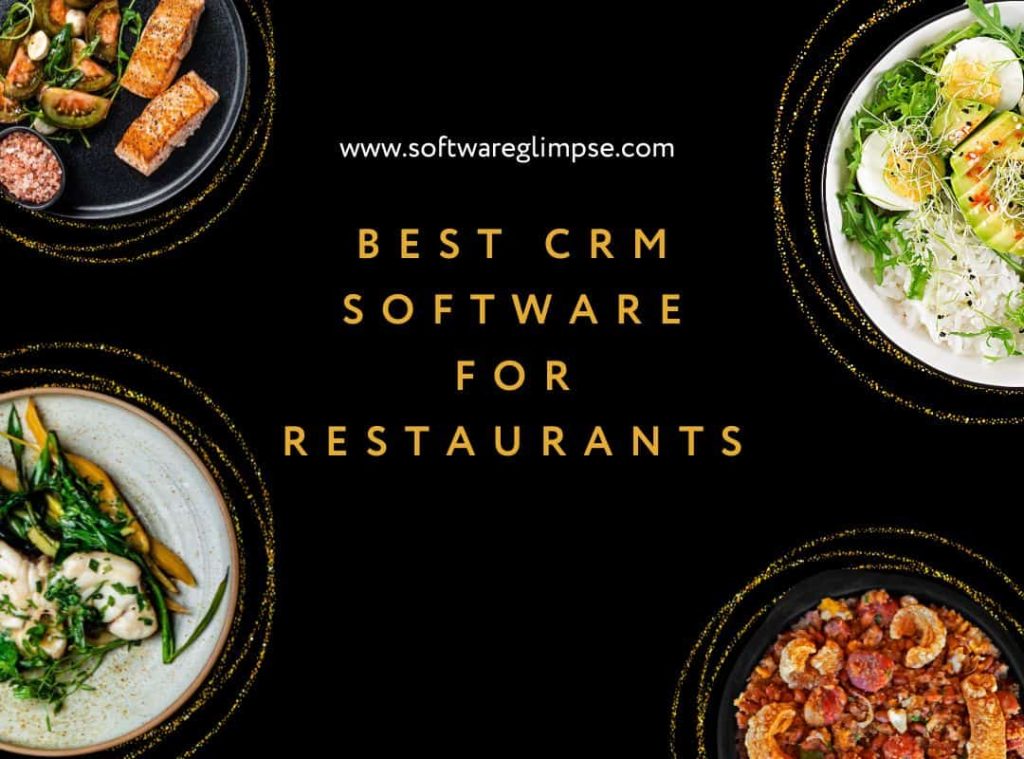Unlocking the Stage: The Best CRM Systems for Small Musicians to Thrive
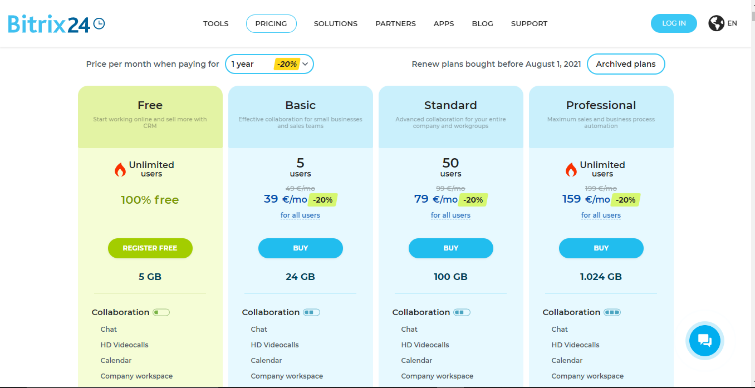
Introduction: Harmonizing Success with the Right CRM
The life of a small musician is a symphony of creativity, passion, and relentless hustle. From crafting compelling melodies to captivating audiences, you pour your heart and soul into your craft. But in today’s digital world, success demands more than just talent. It requires organization, connection, and a strategic approach to managing your career. That’s where a Customer Relationship Management (CRM) system steps onto the stage, becoming an indispensable tool for small musicians.
Think of a CRM as your personal backstage assistant, meticulously organizing your contacts, streamlining your communication, and helping you build meaningful relationships with fans, venues, promoters, and fellow musicians. Without a CRM, you might find yourself lost in a sea of spreadsheets, emails, and missed opportunities. With one, you’re empowered to take control, nurture your network, and propel your music career forward.
This comprehensive guide delves into the world of CRM systems specifically tailored for small musicians. We’ll explore the benefits, examine the key features to look for, and review some of the best CRM platforms available, helping you find the perfect solution to harmonize your business and artistic endeavors.
Why Small Musicians Need a CRM: Tuning into the Benefits
You might be thinking, “I’m a musician, not a businessperson!” But in the modern music industry, the lines are blurred. You are both. You’re the artist, the marketer, the manager, and the entrepreneur. A CRM system provides the structure and support you need to wear all those hats effectively.
Here’s how a CRM can benefit you:
- Centralized Contact Management: Say goodbye to scattered contact information. A CRM consolidates all your contacts – fans, venues, promoters, collaborators – in one accessible place. You can easily store details like email addresses, phone numbers, social media handles, and notes about your interactions.
- Enhanced Communication: CRM systems facilitate targeted communication. Segment your audience based on their interests or engagement levels and send personalized emails, newsletters, or announcements. This fosters deeper connections and keeps your fans engaged.
- Streamlined Booking and Gig Management: Track your gigs, manage contracts, and coordinate with venues and promoters. A CRM can simplify the booking process, ensuring you never miss a deadline or a crucial detail.
- Improved Fan Relationship Management: CRM allows you to understand your fans better. Track their interactions with your music, website, and social media. This data helps you tailor your content and engagement to create a loyal following.
- Data-Driven Decision Making: Gain valuable insights into your audience, your marketing efforts, and your overall performance. CRM reports and analytics help you make informed decisions about your career, focusing your energy on what works best.
- Time Savings: Automate repetitive tasks, such as sending follow-up emails or managing contact updates. This frees up your time to focus on what matters most: creating music.
- Increased Revenue: By nurturing relationships, streamlining bookings, and optimizing your marketing, a CRM can directly contribute to increased revenue through ticket sales, merchandise sales, and gig opportunities.
In essence, a CRM system is an investment in your future as a musician. It’s a tool that empowers you to build a sustainable career, connect with your audience, and focus on the music you love.
Key Features to Look for in a CRM for Musicians: The Perfect Instrument
Not all CRM systems are created equal. When choosing a CRM for your music career, consider these essential features:
- Contact Management: The foundation of any CRM. Ensure the system allows you to store comprehensive contact information, including custom fields to track specific details relevant to your music career (e.g., favorite song, attended gigs).
- Email Marketing: Integrated email marketing capabilities are crucial. Look for features like email templates, segmentation options, and analytics to track your campaign performance.
- Event Management: If you play gigs, a CRM with event management features is invaluable. This includes the ability to track event details, manage ticket sales, and send event reminders.
- Task Management: Keep track of deadlines, follow-ups, and other important tasks. A task management system helps you stay organized and ensures you don’t miss any opportunities.
- Reporting and Analytics: Gain insights into your audience, your marketing efforts, and your overall performance. Look for a CRM that provides clear and concise reports and analytics.
- Integration with Other Tools: Seamless integration with other tools you use, such as social media platforms, email providers, and payment processors, is essential for efficiency.
- Mobile Accessibility: Being able to access your CRM on the go is crucial, especially when you’re constantly on the move. Choose a CRM with a mobile app or a responsive web interface.
- Affordability: Consider your budget when choosing a CRM. Many affordable options offer a range of features suitable for small musicians.
- Ease of Use: The best CRM is the one you’ll actually use. Choose a system with an intuitive interface and easy-to-understand features.
- Customer Support: Look for a CRM provider that offers reliable customer support, including tutorials, FAQs, and responsive customer service.
By focusing on these key features, you’ll be well-equipped to find a CRM that fits your specific needs and helps you thrive in the music industry.
Top CRM Systems for Small Musicians: A Roster of Champions
Now, let’s explore some of the best CRM systems available for small musicians. We’ll cover their key features, pricing, and ideal use cases.
1. HubSpot CRM
Overview: HubSpot CRM is a powerful and free CRM platform that offers a wide range of features, making it a popular choice for small businesses and individuals. It’s known for its user-friendly interface and comprehensive marketing tools.
Key Features:
- Free CRM: Offers a robust free plan with many essential features.
- Contact Management: Stores detailed contact information and tracks interactions.
- Email Marketing: Includes email templates, segmentation, and analytics.
- Sales Automation: Automates repetitive tasks to save time.
- Reporting and Analytics: Provides valuable insights into your performance.
- Integration: Integrates with various tools, including social media platforms.
Pricing: HubSpot CRM offers a free plan with unlimited users and a range of paid plans with more advanced features.
Ideal for: Musicians seeking a free, feature-rich CRM with robust marketing capabilities.
2. Zoho CRM
Overview: Zoho CRM is a well-rounded CRM system that offers a variety of features at an affordable price. It’s known for its customization options and its ability to integrate with other Zoho applications.
Key Features:
- Contact Management: Comprehensive contact management features.
- Sales Automation: Automates sales processes.
- Email Marketing: Includes email marketing tools.
- Workflow Automation: Automates repetitive tasks and processes.
- Reporting and Analytics: Provides detailed reports and analytics.
- Customization: Highly customizable to fit your specific needs.
- Integration: Integrates with various third-party applications.
Pricing: Zoho CRM offers a free plan for up to three users and a range of paid plans with more advanced features.
Ideal for: Musicians seeking a customizable and affordable CRM with robust sales and marketing features.
3. Pipedrive
Overview: Pipedrive is a sales-focused CRM system designed to help you manage your sales pipeline and close deals. It’s known for its visual interface and its focus on sales productivity.
Key Features:
- Visual Sales Pipeline: Provides a clear overview of your sales process.
- Contact Management: Stores detailed contact information.
- Deal Tracking: Tracks deals and opportunities.
- Email Integration: Integrates with your email provider.
- Automation: Automates sales tasks.
- Reporting and Analytics: Provides sales-focused reports.
Pricing: Pipedrive offers a range of paid plans with different features and pricing tiers.
Ideal for: Musicians focused on booking gigs, managing collaborations, and tracking opportunities.
4. Agile CRM
Overview: Agile CRM is a user-friendly CRM system that offers a comprehensive suite of features, including sales, marketing, and customer service tools. It’s known for its affordability and ease of use.
Key Features:
- Contact Management: Stores detailed contact information.
- Email Marketing: Includes email marketing tools.
- Sales Automation: Automates sales tasks.
- Marketing Automation: Automates marketing processes.
- Helpdesk: Provides customer support features.
- Reporting and Analytics: Provides reports and analytics.
- Integration: Integrates with various third-party applications.
Pricing: Agile CRM offers a free plan for up to 10 users and a range of paid plans with more advanced features.
Ideal for: Musicians seeking an all-in-one CRM with sales, marketing, and customer service features.
5. Capsule CRM
Overview: Capsule CRM is a simple and intuitive CRM system that’s easy to set up and use. It’s designed for small businesses and individuals who want a straightforward CRM solution.
Key Features:
- Contact Management: Stores detailed contact information.
- Deal Tracking: Tracks deals and opportunities.
- Task Management: Keeps track of tasks and deadlines.
- Email Integration: Integrates with your email provider.
- Reporting: Provides basic reporting features.
Pricing: Capsule CRM offers a free plan for up to two users and a range of paid plans with more advanced features.
Ideal for: Musicians seeking a simple and easy-to-use CRM with essential features.
Implementing Your CRM: Hitting the Right Notes
Choosing the right CRM is just the first step. To maximize its benefits, you need to implement it effectively. Here’s a step-by-step guide:
- Define Your Goals: What do you want to achieve with your CRM? Are you looking to increase ticket sales, streamline bookings, or build a stronger fan base? Defining your goals will help you choose the right CRM and tailor your implementation.
- Choose the Right CRM: Based on your goals and needs, select the CRM that best fits your requirements.
- Import Your Data: Import your existing contact information, including fans, venues, promoters, and collaborators, into your CRM.
- Customize Your CRM: Tailor your CRM to fit your specific needs. Add custom fields, create pipelines, and configure automation rules.
- Train Your Team: If you’re working with a team, train them on how to use the CRM. Provide clear instructions and documentation.
- Integrate with Other Tools: Integrate your CRM with other tools you use, such as social media platforms, email providers, and payment processors.
- Start Using the CRM: Start using your CRM to manage your contacts, track your gigs, send emails, and analyze your performance.
- Monitor and Optimize: Regularly monitor your CRM performance and make adjustments as needed. Analyze your data to identify areas for improvement.
By following these steps, you can ensure a smooth and successful CRM implementation.
Beyond the Basics: Advanced CRM Strategies for Musicians: Playing a Virtuoso Performance
Once you’ve mastered the basics of your CRM, you can explore advanced strategies to take your music career to the next level:
- Segmentation: Segment your audience based on their interests, engagement levels, or location. This allows you to send targeted emails and personalize your communications.
- Automation: Automate repetitive tasks, such as sending welcome emails to new subscribers or following up with leads. This frees up your time to focus on creating music.
- Lead Scoring: Assign scores to your leads based on their interactions with your website, emails, and social media. This helps you prioritize your efforts and focus on the most promising leads.
- Workflow Automation: Create automated workflows to streamline your processes, such as booking gigs or managing merchandise sales.
- Analytics and Reporting: Regularly analyze your CRM data to gain insights into your audience, your marketing efforts, and your overall performance. Use this data to make informed decisions and optimize your strategies.
- Integration with Marketing Automation Tools: Integrate your CRM with marketing automation tools to create more sophisticated marketing campaigns.
- Personalization: Personalize your communications to create a more engaging experience for your fans. Use their names, interests, and preferences to tailor your messages.
By implementing these advanced strategies, you can transform your CRM into a powerful tool for building a successful music career.
Conclusion: The Encore of Success
In the competitive world of music, a CRM system is no longer a luxury; it’s a necessity. It’s the key to unlocking your potential, connecting with your audience, and building a sustainable career. By choosing the right CRM, implementing it effectively, and leveraging advanced strategies, you can transform your music career from a passionate hobby into a thriving enterprise.
So, take the stage with confidence, knowing that you have the tools and the knowledge to succeed. Embrace the power of CRM, and let your music resonate with the world.

